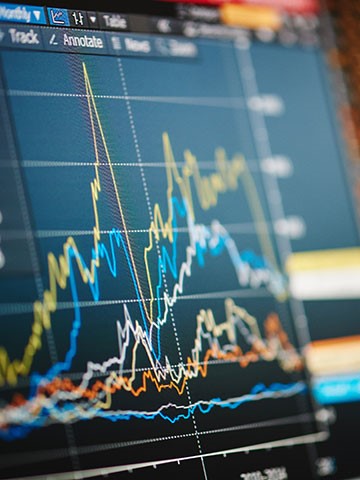Anticipation is key to the continuity of service
Operating in Rome and Singapore, GEM took inspiration from the situation experienced by its teams to anticipate different scenarios for its offices around the world. Well before lockdown was imposed, the IT department prepared for virtually all staff to switch to remote working. All teams requiring specific IT equipment were equipped at home, as were the traders and dispatchers responsible for supply. Our teams have been able to create and operate secure 24/7 environments for teams who need to comply with high regulatory standards.
ENGIE GEM’s IT department faced some daunting challenges:
- Allowing working from home on a massive scale, for 100% of the workforce, even though many jobs are carried out in a regulated and strictly monitored environment, sometimes requiring specific hardware for dispatching or trading. The IT department managed to make this mass remote working possible by creating secure environments and managing the supply of equipment to the teams. The IT teams organized a transfer of equipment from ENGIE’s offices to the teams’ home addresses, supplemented by purchases of touch tablets to recreate the trading telephone environment.
- Organizing activities so that all users of critical applications (financial closing, 24/7 gas/electricity balance) are able to use them remotely under the best possible conditions.
To ensure that the GEM teams function properly, care is taken to keep the T1 tower in Paris open so that interventions on the equipment can be carried out if necessary.
How Dispatching adapted
ENGIE’s commercial gas dispatching business, which has existed since 2001, ensures the smooth delivery of gas volumes consumed by ENGIE’s customers in Europe. In response to the Covid-19 crisis, this activity has adapted very quickly to ensure the continuity of service essential to the security of gas supply in France and Belgium. As a leading player in “short-term” optimization and balancing, it is more than ever committed to serving the customers of ENGIE’s sales teams as well as its external partners.
At the beginning of March, as the risk of infection increased, it was decided to set up two separate and independent teams, one that would be responsible for dispatching at the T1 tower at La Défense, and the other for the back-up site in the Paris suburbs, with the rest of the “non-posted” teams working from home. Thanks to this configuration, both operational risks and health risks for the dispatchers were minimized.
Edouard Vuatrin, head of gas commercial dispatching at Global Energy Management:

“Dispatchers usually have 5 or 6 screens in front of them to monitor their data in real time. They have trading communications turret with logged lines and are in constant contact with transportation, Storage and LNG facilities operators. All conversations are recorded, in particular to trace back the purchase and sale of gas and to comply with regulations. For my team, more than 20 dispatchers had to transfer their equipment themselves or with assistance from their colleagues in order to be on call day and night from their homes.
With help from IT, we are in the process of setting up virtual machines and performing final tests so that we won’t have to revert to the T1 tower in the event of a bug. It is a first to be able to completely virtualize and decentralize the commercial dispatching. Congratulations to the teams!
For dispatching, a second adaptation occurred in relation to the crisis. Our gas consumption forecasting model did not adjust to the effects of the lockdown. We therefore carried out a rapid survey in order to make adjustments and find an alternative tactical solution. We are starting to get a view of consumption trends in March: consumption has not fallen all that much for private customers, but businesses and large consumers have been very badly affected.”
In Belgium, a very similar approach has been taken and those teams that were able to do so have also massively switched to working from home. Thus, there are only about forty indispensable “short-term” operators left, including electricity dispatching, who continue to work shifts 24 hours a day at two Belgian sites, the ETB (ENGIE Tower Brussels), which is near the Gare du Nord station in Brussels, and the back-up site, located in Linkebeek. This “short-term” team ensures the balance of the Central European generation and consumption portfolio on the spot market (D-1) and intraday market. It guides our power generation units and those of our customers in real time.
At Global Energy Management, for every dispatcher working, there is a computer specialist behind the scenes. Dispatchers work in different types of positions (three shifts, two shifts, optimizers, market operators, physical risk managers), and there are also a number of occupations in IT (analysts, developers, architects, infrastructure managers).


